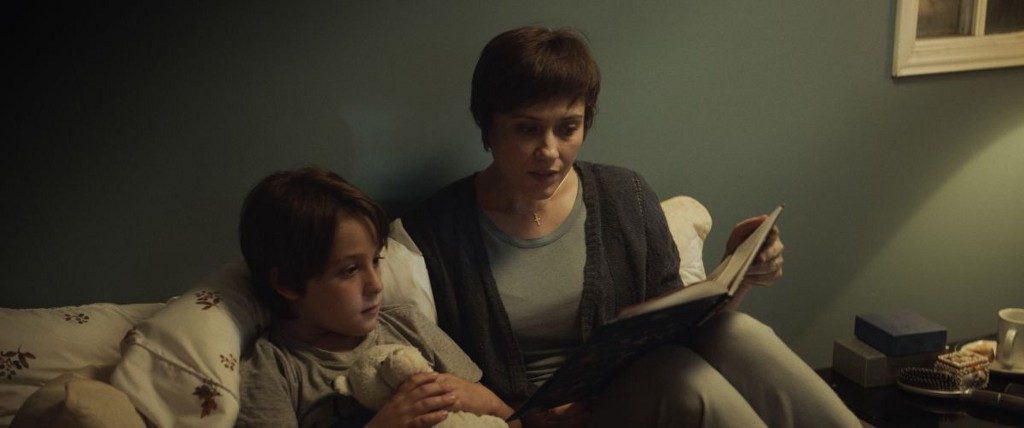Ioana Uricaru was born and raised in Romania, where she studied biology before turning to filmmaking. She is an Alumna of Berlinale Talents, the Cannes Cinefondation Residence Programme, the Sundance Labs, and the Torino Film Lab. Uricaru has previously directed shorts “The Sun and the Moon,” “Stopover,” and “The Witness.”
“Lemonade” will premiere at the 2018 Tribeca Film Festival on April 19.
W&H: Describe the film for us in your own words.
IU: It’s a bit of a twist on the American Dream. You can achieve anything you want — if you’re willing to pay the price.
W&H: What drew you to this story?
IU: I’m an immigrant, and the film is partially autobiographical.
W&H: What do you want people to think about when they are leaving the theater?
IU: I’d like them to wonder what would they do if confronted with the situations presented in the film.
W&H: What was the biggest challenge in making the film?
IU: Not giving up through the eight years of fundraising and development.
W&H: How did you get your film funded? Share some insights into how you got the film made.
IU: “Lemonade” is an international co-production between Romania, Canada, Germany, and Sweden. Ninety percent of funding came from institutional grants and loans — once we received financing from the Romanian National Center for Cinema, our partners in the other co-producing countries were able to access similar funds.
We also received funding from European institutions — the Media Programme, and Eurimages. Unfortunately, this is not a model that can be applied in the U.S. where these support mechanisms for filmmaking are sorely lacking.
W&H: What does it mean for you to have your film play at Tribeca Film Festival?
IU: It will be its North American premiere, and I’m of course a bit nervous about receiving feedback from the U.S. audiences, since the film is about a Romanian’s relationship with America. But the excitement of playing Tribeca wins in the end!
W&H: What’s the best and worst advice you’ve received?
IU: In making this film? The best was probably to choose — in production — authenticity over ease or comfort. There were some occasional uninspired suggestions, but I decided against them.
W&H: What advice do you have for other female directors?
IU: In the end, you’re taking the responsibility, so go ahead and exercise the power.
W&H: Name your favorite woman-directed film and why.
IU: Chantal Akerman’s “Jeanne Dielman, 23 Commerce Quay, 1080 Brussels,” and Sarah Polley’s “Stories We Tell.” They both have such boldness, such force, and they are so exquisitely crafted.
W&H: Hollywood and the global film industry are in the midst of undergoing a major transformation. Many women — and some men — in the industry are speaking publicly about their experiences being assaulted and harassed. What are your thoughts on the #TimesUp movement and the push for equality in the film business?
IU: There are so many talented women who do not get access to the industry. It seems that significant obstacles intervene between film school — most film schools have a pretty good gender balance — and the first feature, or in other words, the threshold for entering the profession(s). That’s the first major “bottleneck,” followed by the one between the first and the second feature — the threshold for starting a career.
Another big set of obstacles is facing women who don’t make it to film school for innumerable reasons, and it doesn’t get easier beyond the second feature or TV show.
Eradicating sexual harassment from any and all corners of the industry and its satellite structures — education, temporary workforce etc — is a necessary, non-negotiable, but by far insufficient step in creating more opportunities for talented women who have something to say as filmmakers.







